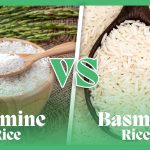Chipotle Mexican Grill is a well-known fast-casual eatery with almost 2,500 locations worldwide. The restaurant is well-liked for its completely customizable menu, which includes a wide selection of sauces, proteins, and toppings along with dishes like tacos, burritos, and salads. Chipotle can be a quick, healthy, or high-calorie treat, depending on what you choose.
The Chipotle Steak Bowl, which combines tender, juicy steak with a scrumptious assortment of sides and toppings, is one of the restaurant’s signature dishes. This bowl is not only delicious but also high in nutrients, making it an excellent choice for health-conscious eaters. The steak contains lean protein, whereas the beans and rice contain complex carbohydrates and fiber. Roasted vegetables provide an additional source of vitamins and antioxidants. With its customizable toppings, the Chipotle Steak Bowl caters to various dietary preferences and restrictions, making it a satisfying and guilt-free meal choice.
Besides being a delicious choice, it’s important to consider the nutritional value of the Chipotle Steak Bowl. Knowing the nutrition facts of the Chipotle Steak Bowl can help you make informed choices and enjoy this flavorful meal guilt-free. So, let’s dig in and discover what makes the Chipotle Steak Bowl a delicious and nutritious option.
Nutrient profile:
Nutrient Content of a serving of Chipotle Steak bowl is given in Table 1. (Subramanian, 2017)
| Nutrition Facts | |||||
| Serving Size 1bowl | |||||
| Amount per Serving | |||||
| Calories 610 | |||||
| % Daily Values* | |||||
| Total Fat (27.00g) | 35% | ||||
| Saturated Fat (15.00g) | 75% | ||||
| Trans Fat (0.00g) | |||||
| Cholesterol (150mg) | 50% | ||||
| Sodium (1450mg) | 63% | ||||
| Total Carbohydrates (49.00g) | 18% | ||||
| Dietary Fiber (4.0g) | 14% | ||||
| Sugars (3.00g) | |||||
| Added sugars (0g) | 0% | ||||
| Protein (33.00g) | |||||
| Vitamin D (0mcg) | 0% | ||||
| Calcium (140mg) | 10% | ||||
| Iron (15.1mg) | 80% | ||||
| Potassium (180mg) | 4% | ||||
| *The % Daily Value (DV) tells you how much a nutrient in a serving of food contributes to a daily diet. 2000 calories a day is used for general nutrition advice. | |||||
Calories:
The number of calories in a Chipotle steak bowl can vary based on the toppings and portion size. On average, a standard steak bowl can contain around 600 to 800 calories.
Macronutrients:
Carbohydrates:
A Chipotle Steak Bowl contains 48 grams of carbohydrates, with 45 grams of net carbs after subtracting fiber and sugar alcohols. The rice, beans, veggies, and tortillas (if any) give the bowl carbohydrates, which also contain important vitamins and minerals and a moderate amount of energy.
Protein:
A Chipotle Steak Bowl contains 65 grams of protein, making it an excellent source for muscle growth, repair, and maintenance. The protein in the bowl comes from the steak, beans, rice, and vegetables, providing a balanced mix of essential amino acids.
Fat:
A Chipotle Steak Bowl contains 34 grams of fat, which is sourced from the steak, rice, beans, vegetables, guacamole, and sour cream (if included).
Fiber:
A Chipotle Steak Bowl contains 3 grams of fiber, primarily from the beans, vegetables, and rice.
Micronutrients:
Calcium:
A Chipotle Steak Bowl contains 320 milligrams of calcium per serving, which accounts for 32% of the daily recommended amount. Calcium is necessary for the development and maintenance of strong bones and teeth, as well as muscle and nerve function.
Iron:
Chipotle Steak Bowl contains 5.2 milligrams of iron per serving, which accounts for 29% of the daily recommended intake. Iron is essential for healthy red blood cells, which transport oxygen throughout the body. It also supports immune function, cognitive function, and energy metabolism. Adequate iron intake is essential for preventing iron deficiency anemia, fatigue, and weakness.
Potassium:
A Chipotle Steak Bowl is an excellent source of potassium, with 1240 milligrams per serving, making up 35% of the daily recommended intake. Potassium is essential for maintaining normal blood pressure, bone health, and muscle and nerve function. It also helps regulate fluid balance, supports healthy heart function, and aids in muscle recovery after exercise.
Magnesium:
A Chipotle Steak Bowl contains 76 milligrams of magnesium per serving, accounting for 19% of the daily recommended intake. Magnesium is vital for muscle and nerve function, as well as bone health. It supports energy metabolism, regulates blood sugar levels, and promotes healthy blood pressure. Adequate magnesium intake is crucial for preventing muscle cramps, fatigue, and weakness.
Zinc:
A Chipotle Steak Bowl has 3.5 milligrams of zinc per serving, which accounts for 23% of the daily recommended intake. Zinc is essential for immune functioning, wound healing, and protein synthesis. Adequate zinc intake is essential for preventing impaired growth and development, weakened immune function, and slowed wound healing.
Sodium:
A Chipotle Steak Bowl has 1710 milligrams of sodium per serving, which accounts for 71% of the daily recommended intake. Sodium is essential for maintaining fluid balance, nerve function, and muscle contractions. However, excessive sodium intake can lead to high blood pressure, cardiovascular disease, and stroke. It’s essential to balance sodium intake with potassium and other minerals to maintain overall health.
Ingredient Analysis:
The chipotle streak bowl contains the following ingredients:
Steak:
Steak (flank steak, skirt steak, or top-round steak): High-quality protein source, providing essential amino acids and iron
Grains:
Rice: Complex carbohydrate source, providing energy and fiber.
Vegetables:
Lettuce: Low in calories, rich in vitamins A and K, and fiber.
Red onions: Good source of fiber and antioxidants.
Corn: Good source of carbohydrates and fiber.
Black beans: High in protein, fiber, and essential minerals like potassium and iron.
Jalapenos: Low in calories, rich in antioxidants and vitamin C.
Cilantro: Fresh and fragrant, rich in vitamins A and K, and antioxidants.
Dairy/Alternatives:
Shredded cheese (Monterey Jack or Cheddar): Good source of calcium and protein.
Sour cream or Greek yogurt: Good source of calcium and protein.
Flavorings:
Chipotles in adobo sauce: Spicy and smoky, rich in antioxidants and vitamin C.
Lime juice: Low in calories, rich in vitamin C and antioxidants.
Salt and black pepper: Enhancing flavor, providing essential minerals.
Garnishes:
Guacamole: Rich in healthy fats, fiber, and essential vitamins and minerals.
Avocado: Rich in healthy fats, fiber, and essential vitamins and minerals.
Limes: Low in calories, rich in vitamin C and antioxidants.
This breakdown shows that a Chipotle Steak Bowl contains a balanced mix of protein, complex carbohydrates, healthy fats, fiber, essential vitamins and minerals (vitamin A, vitamin C, calcium, iron, potassium), making it a nutrient-dense meal option.
Nutritional Benefits:
Brown rice is a high-fiber, high-nutrient choice that promotes healthy digestion and offers long-lasting energy. It’s high in manganese, selenium, and magnesium, which are essential for bone health, immune function, and antioxidant defenses. Brown rice also contains prebiotic fiber, which feeds the good bacteria in your gut, promoting a healthy gut microbiome.
Black and pinto beans offer high-quality protein, fiber, and essential minerals like potassium, folate, and iron. Phytochemicals, which have been demonstrated to lower inflammation and enhance cardiovascular health, are also abundant in them. As a plant-based source of protein, beans are a great addition to your bowl because they are higher in fiber and lower in saturated fat than animal-based options.
These vegetables support overall health and immune function by supplying potassium, antioxidants, and vitamins A and C. Folate, which is necessary for cell growth and development, is abundant in lettuce, and tomatoes are a good source of lycopene, a potent antioxidant that lowers inflammation and strengthens heart health. Salsa adds a boost of vitamin C and antioxidants from the tomatoes, onions, and peppers.
Grilled chicken and steak offer lean protein options, reducing saturated fat and calorie intake. Chicken is high in niacin, vitamin B6, and selenium, while steak contains iron, zinc, and B vitamins. Opt for grass-fed or pasture-raised options to get higher-quality protein and more nutrients.
Avocado and Greek yogurt toppings make the bowl creamy and nutritious, which promotes heart health and satisfaction. Avocados contain monounsaturated fats, which help lower cholesterol and improve blood lipid profiles. Greek yogurt provides probiotics, protein, and calcium, supporting gut health and bone density.
Jalapenos and hot sauce boost metabolism, suppress appetite and support immune function. Capsaicin in hot peppers promotes thermogenesis, which helps your body burn more calories while also reducing inflammation and improving circulation.
Whole wheat tortillas provide more fiber, iron, and B vitamins than refined flour tortillas, while corn tortillas are higher in antioxidants and minerals like magnesium and potassium.
Control your portion sizes to maintain a healthy calorie intake. As seen in the Chipotle steak bowl, aim for a palm-sized amount of protein, a fist-sized amount of vegetables, and a small amount of healthy fats. This will keep you full, satisfied, and on track with your nutrition goals.
Customization for a healthier bowl:
Chipotle provides a variety of toppings and ingredients, allowing customers to customize their Steak Bowl based on their dietary preferences. Whether you prefer extra veggies, additional protein, or a spicy kick, you can personalize your bowl to suit your taste.
First, choose brown rice instead of white rice for a fiber and nutrient boost. Go easy on the cheese or skip it altogether to reduce calories and saturated fat. Load up on veggies like lettuce, tomatoes, and salsa for extra vitamins and antioxidants. Opt for black beans or pinto beans, which are high in fiber and protein and lower in fat than chicken or steak.
If you prefer meat, choose grilled chicken or steak, which are lower in fat than carnitas or chorizo. Chipotle offers gluten-free options for those with dietary restrictions or sensitivities. The Chipotle Steak Bowl can be ordered without the tortilla, making it suitable for individuals following a gluten-free diet.
Limit or avoid sour cream and guacamole, which are high in calories and fat, and consider substituting with Greek yogurt or avocado instead. Add some heat with jalapenos or hot sauce to boost your metabolism and suppress your appetite.
Finally, for a healthier alternative to flour tortillas, choose whole wheat or corn tortillas, and limit your portion sizes to keep your calorie intake under control. You can make your meal healthier and more balanced by adding these options to your order.
Conclusion:
With a few simple modifications, a Chipotle Steak Bowl can become a nutrient-packed meal that supports your overall health and well-being. Brown rice, beans, vegetables, lean steak, and healthy fats are good choices for creating a satisfying and well-balanced meal that has long-term health benefits.
This customized bowl will not only fuel your body but also support your fitness goals, boost your energy levels, and even help you maintain a healthy weight. By taking charge of your nutrition and making informed choices, you can enjoy a guilt-free meal that nourishes your body and satisfies your cravings. So, next time you’re at Chipotle, don’t be afraid to get creative and build a Steak Bowl that’s both delicious and nutritious.
References:
- Subramanian, R. (2017). Chipotle Mexican Grill, Inc.: “Food with integrity”. In Case Studies in Sustainability Management (pp. 288-304). Routledge.
- Walker, R., & Merkley, G. (2017). Chipotle Mexican Grill: Food with integrity? Kellogg School of Management Cases, 1-8.
- Veneziano, C. N. (2013). Restaurants: Do Healthy Menus Mean Positive Financial Performance? A Case Study of Chipotle Mexican Grill.
- Cejda, S., Gohl, A., Lim, A., Loebig, T., & Winberg, M. ADPR 283: Strategic Development Final Project.
- Plowman, S. (2019). A Strategic Audit of Chipotle Mexican Grill, Inc.
- Liu, P. J., Bettman, J. R., Uhalde, A. R., & Ubel, P. A. (2015). ‘How many calories are in my burrito?’Improving consumers’ understanding of energy (calorie) range information. Public Health Nutrition, 18(1), 15-24.
- Davis, M. M. (2012). Nutritionally Focused Drive-thru Menus And The Impact On Consumer Preferences: A Study Of The Restaurant Industry.






